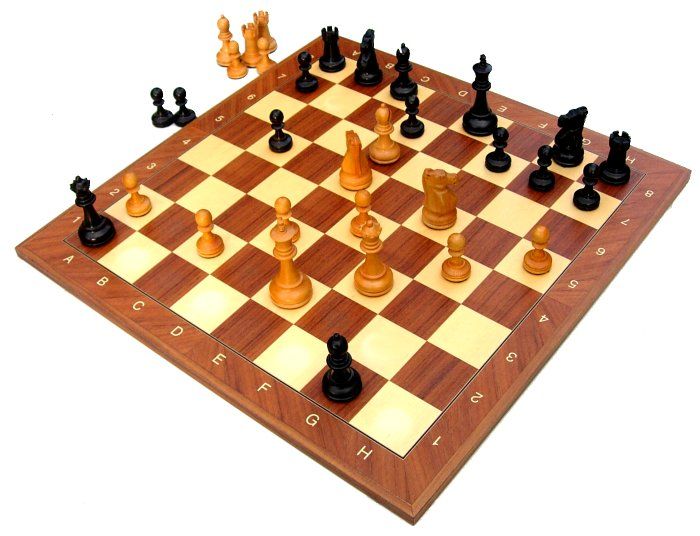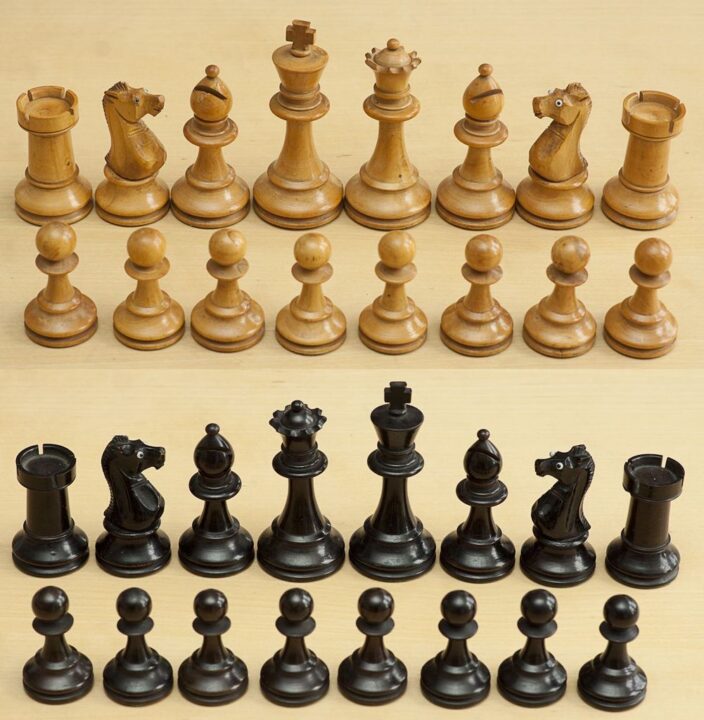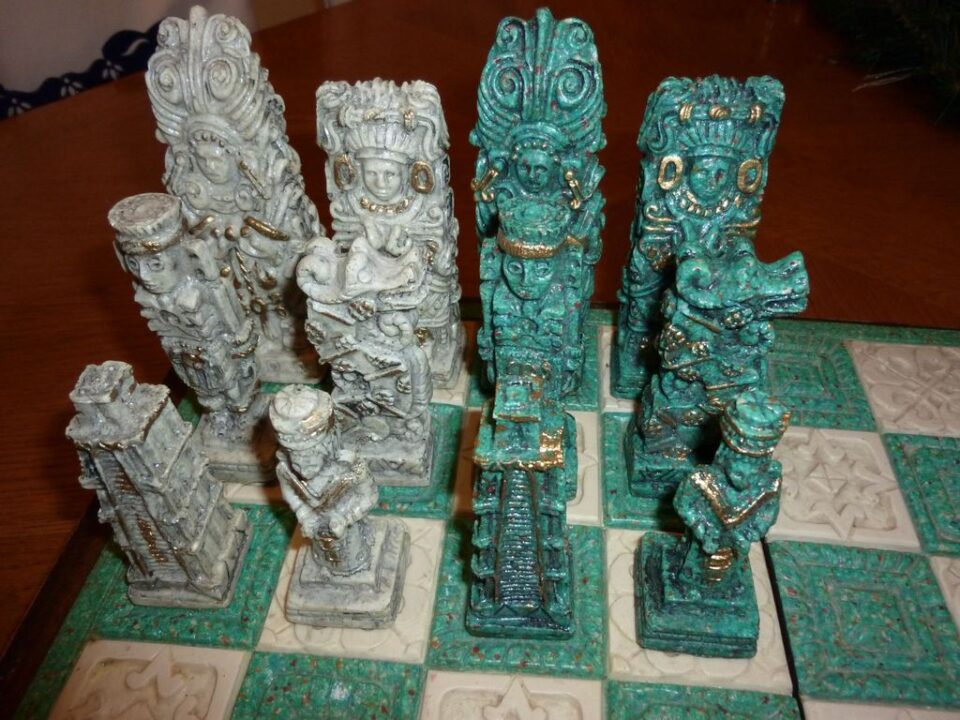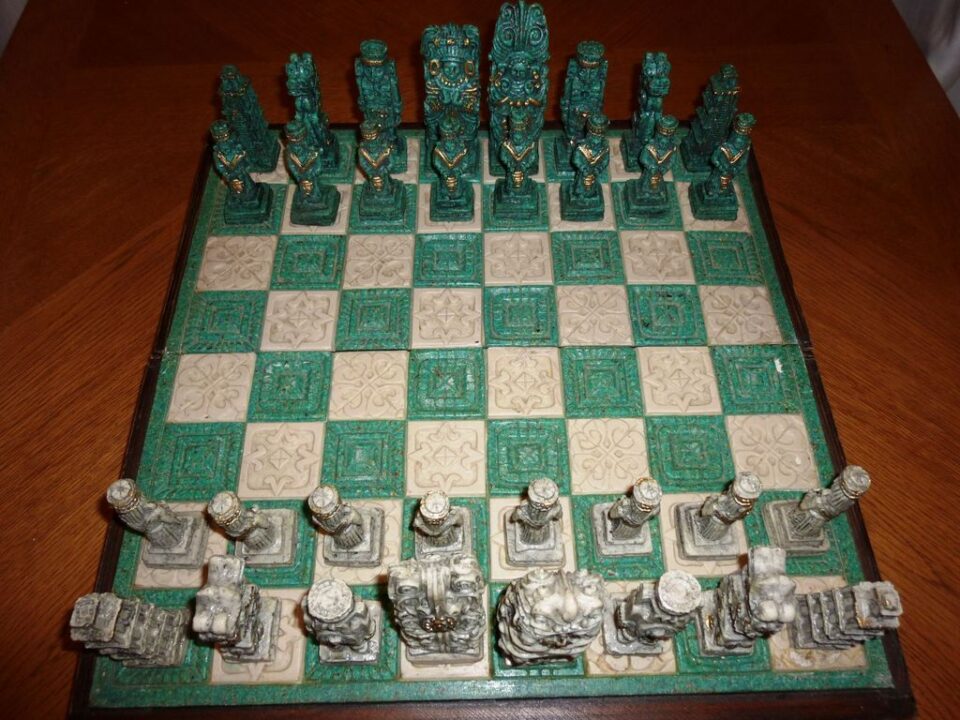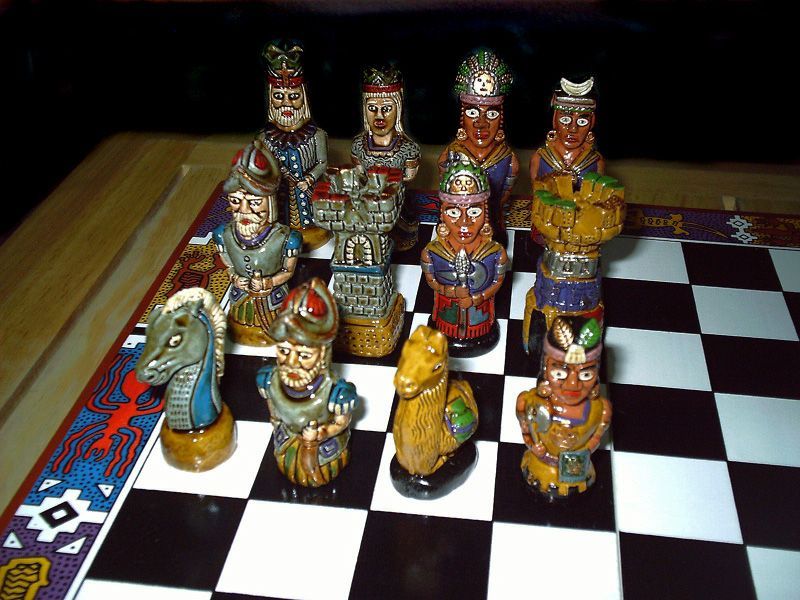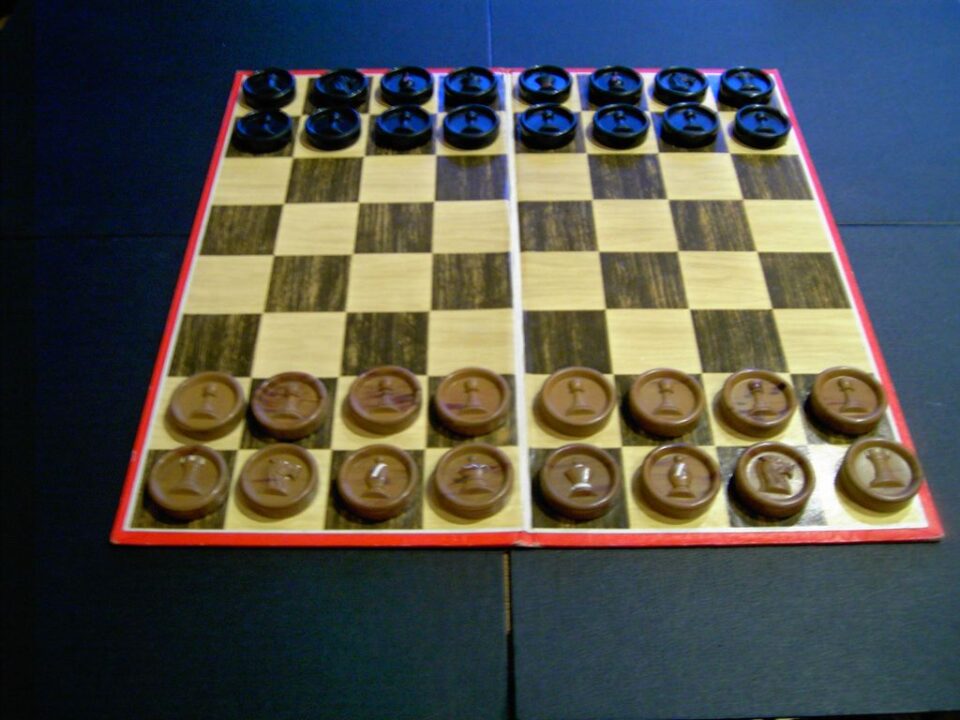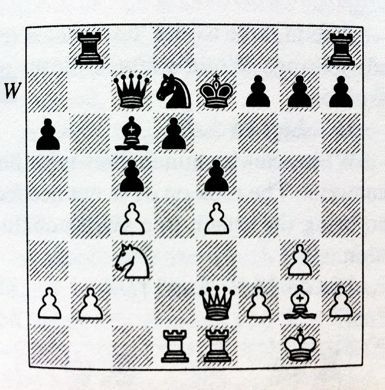Pull up a chair and get ready to stare at wooden dudes for hours—yep, this is my review of chess. I’ve battled my friends (and lost to my grandma) more times than I can count, so you can trust I know my way around a bishop. Let’s see if this old-school classic actually deserves all the brainy hype or if it’s just a fancy table ornament for impressing your guests.
How It Plays
Setting Up
Put the board so each player has a white square on their right. Set up your army: pawns go on the second row, then place rooks in the corners, knights next to rooks, bishops standing beside the knights. Your queen sits on her color (white queen on white, black queen on black), and the king takes the last spot. Now glare at your opponent, try to look smart (optional).
Gameplay
White goes first. Players take turns moving one piece at a time. Each type of piece moves in a different way. Pawns only move forward but capture on the diagonal, knights jump in an L-shape, bishops go diagonal, rooks run in straight lines, queens do whatever they want (almost), and kings move just one space in any direction. The goal? Threaten the enemy king and force a checkmate. Pro tip: if your friend says “en passant” and looks smug, just nod like you get it.
Winning the Game
If you trap the enemy king, so it can’t escape (that’s checkmate!), you win. If neither player can checkmate, it’s a draw. Sometimes this happens because your five-year-old nephew decided it was more fun to make horsey noises with the knights than finish the game. Happens to the best of us.
Want to know more? Read our extensive strategy guide for Chess.
How Deep is the Chess Ocean? A Look at Strategy and Gameplay Depth
Alright, let me tell you, I’ve played chess enough times with my friends to know this game is like a spicy onion: layer after layer, and sometimes it makes you cry. One minute you’re feeling clever for moving your knight, next thing you know, your queen is gone and you’re considering taking up knitting instead. No board game I’ve tried packs as much strategic depth as chess, and I’ve faced some real brain-burners—yes, I still have nightmares about Agricola!
Chess is all about planning ahead. You can’t just blunder around and hope Lady Luck throws you a bone. I love how each piece has its own personality—rooks are straight shooters, bishops have that diagonal sass, and don’t get me started on the queen, who can do everything except brew coffee. Every game feels unique because there’s about a gazillion ways it can play out (I’m not great at math, but trust me: a gazillion is a lot).
Even after years of losing to my smug friend Dave, I keep coming back, because chess never feels stale. There’s always a new trick, a sneaky trap, or an opening I want to try. That’s the genius of it. No dice, no cards, no unicorns arriving to save you—just your brain against someone else’s, which sometimes isn’t as fun as it sounds after a really bad blunder.
Oh, and if you’re wondering if you need an Einstein-level brain to start, don’t worry—I’ll cover learning curve and accessibility next, so stay tuned while I dig up my old chess-for-dummies booklet.
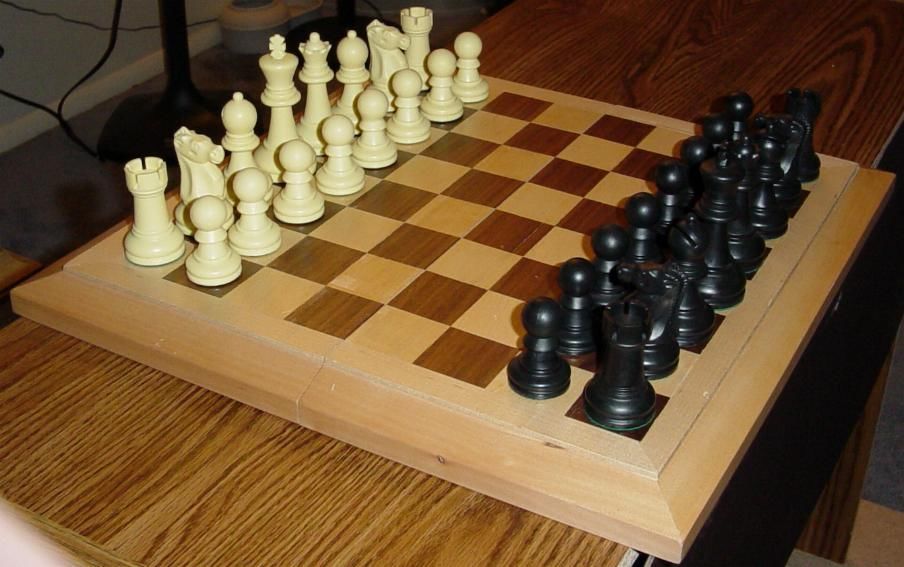
Learning Curve and Accessibility: Can Anyone Play Chess?
Let’s not beat around the bush—chess has a reputation. When I taught my friend Sam, who still struggles to tell left from right, the rules of chess, I saw both hope and horror flicker across his face. There’s a lot to take in at first. Six different pieces, each with their own weird moves, and that odd rule about pawns turning into queens when they cross the board. I do think the learning curve is steeper than your grandma’s old wooden stairs.
But here’s the thing: almost everyone knows what a chessboard looks like. The rules are everywhere, from free tutorials online to coffee shop posters. You can play it without spending a dollar—almost every house I’ve visited has a dusty chess set or a board on an app. That said, learning to beat the average player is another story. I still remember losing in three moves to my cousin, who then insisted on explaining “Fool’s Mate” in detail, twice.
But don’t let that scare you off. For every grandmaster who calculates six moves ahead, there are thousands of us just trying not to walk our queen into a trap. Chess, despite its complexity, is extremely accessible. Kids, adults, your weird uncle Larry—they can all play. Matches last as long (or as short) as you want, and you don’t need a PhD in medieval warfare to enjoy yourself.
Next up: I’ll discuss whether the chessboard is a thing of beauty, or just an accident in black and white—let’s talk component quality and board design!
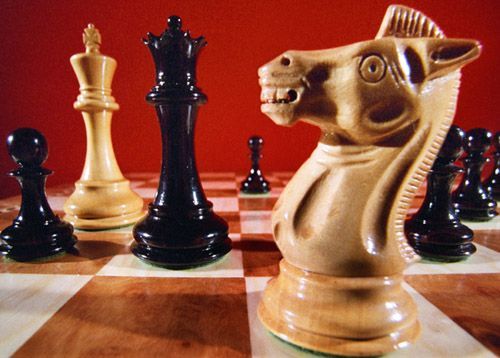
Component Quality and Board Design in Chess: Classic Meets Classy
Let’s face it. A lot of us got our first chess set in a box with plastic pieces that looked like they’d shatter if you looked at them too hard. My first set survived many a family feud (in more than one sense), but eventually even the knight lost its nose. The beauty of chess, though, is that it wears many coats. I’ve played on everything from splintery park boards stained with coffee, to fancy wooden sets that made me feel like royalty. If you want to look like you know what you’re doing—even if you can’t remember how the horsey moves—a classy set will upgrade your kitchen table instantly.
Component quality really matters with chess because you’ll be fiddling with those pieces a lot. That satisfying clack when you slide a wooden rook? That’s pure serotonin. A cheap set feels flimsy, and the pieces topple if you even breathe near the board. Meanwhile, the heavy Staunton-style sets are robust, easy to grip, and somehow make your blunders feel less shameful. The print quality of the board is another big thing. A warped, crinkly board will make pieces wobble and lead to—no joke—testy arguments. (I once blamed a wobbly bishop for my downfall. No one believed me. They were right.)
You can spend five bucks or a thousand, but whatever you pick, make sure the pieces and board are sturdy enough for lots of battles. Chess is one of those games that benefits from being pretty to look at. It just feels right.
Next up, we’ll see if chess gets stale after a dozen matches or if it goes the distance—grab a snack, because replay value and game duration are up next!
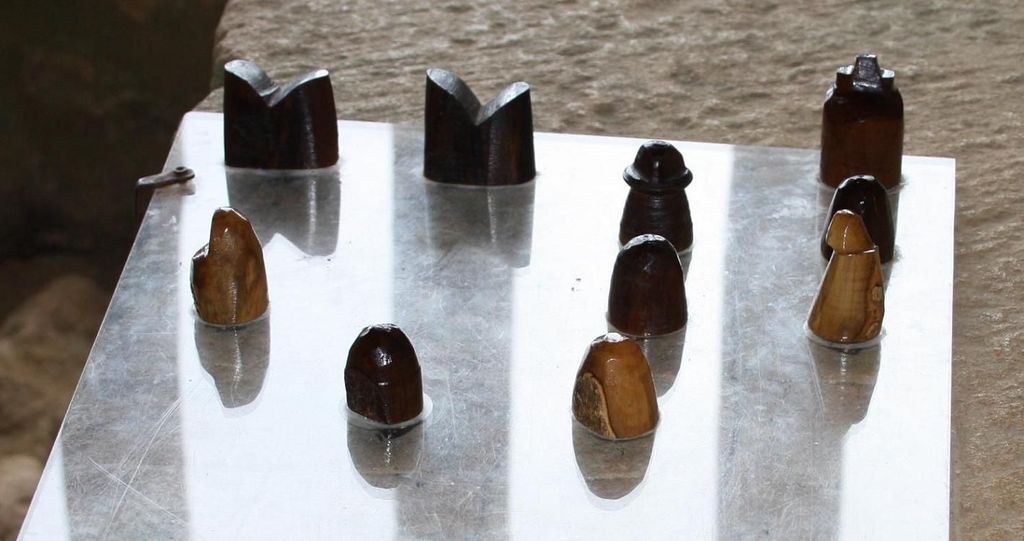
Replay Value and Game Duration in Chess: A Never-Ending Battle
If there’s one thing about chess, it’s that you’ll never play the same game twice. I swear, even after a hundred matches with my friends, I still get surprised by how each game spins out in wild ways. The replay value here is off the charts. With billions of possible moves, you could play chess until you retire… and then keep playing in the retirement home. I’m already picturing myself smuggling my favorite set into the bingo hall.
As for game length, chess is flexible for your schedule. Quick games can finish in ten minutes if someone blunders their queen (guilty as charged), but if you’re playing with your super serious buddy who treats each move like a life decision, buckle up for an hour-long brain marathon. That said, you’re always in control—want a fast rematch? Reset the pieces and go again. Want an epic battle for the ages? Take your time. You get to pick your own adventure, which I love.
It’s rare to find a board game that offers this much fresh challenge every time you play and lets you decide how hardcore or chill you want to be. Whether you like speed-runs or deep-think marathons, chess has your back. If you value replay value and game duration variety, you can’t go wrong here. I’d absolutely recommend chess for a lifetime of play—unless you hate fun, in which case… I can’t help you!
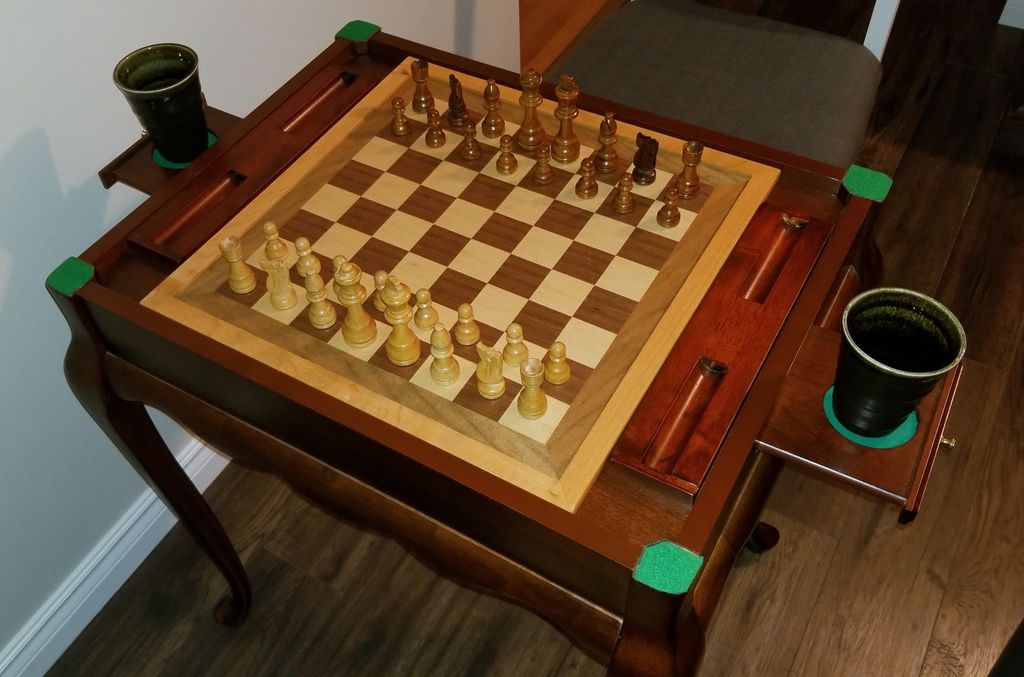
Conclusion
Alright, that wraps up my not-so-epic chess review! Chess really is the gold standard for strategy lovers. The rules are simple enough for anyone (even Uncle Joe who still can’t tell the horse from the bishop), but the depth will keep your brain hopping for years. The replay value is off the charts and you can play a fast blitz or a brain-melting marathon. Plus, with so many board styles, you can show off your classy taste—or just spill coffee on a plastic set like I did. Minor downside: no luck is involved, so if you lose, it’s definitely on you (sorry, not sorry). If you’re after pure skill, chess wins. If you need flashy plastic gems or random dice rolls, well, maybe look elsewhere. Thanks for sticking around. Now go play or dust off your old chess board!

